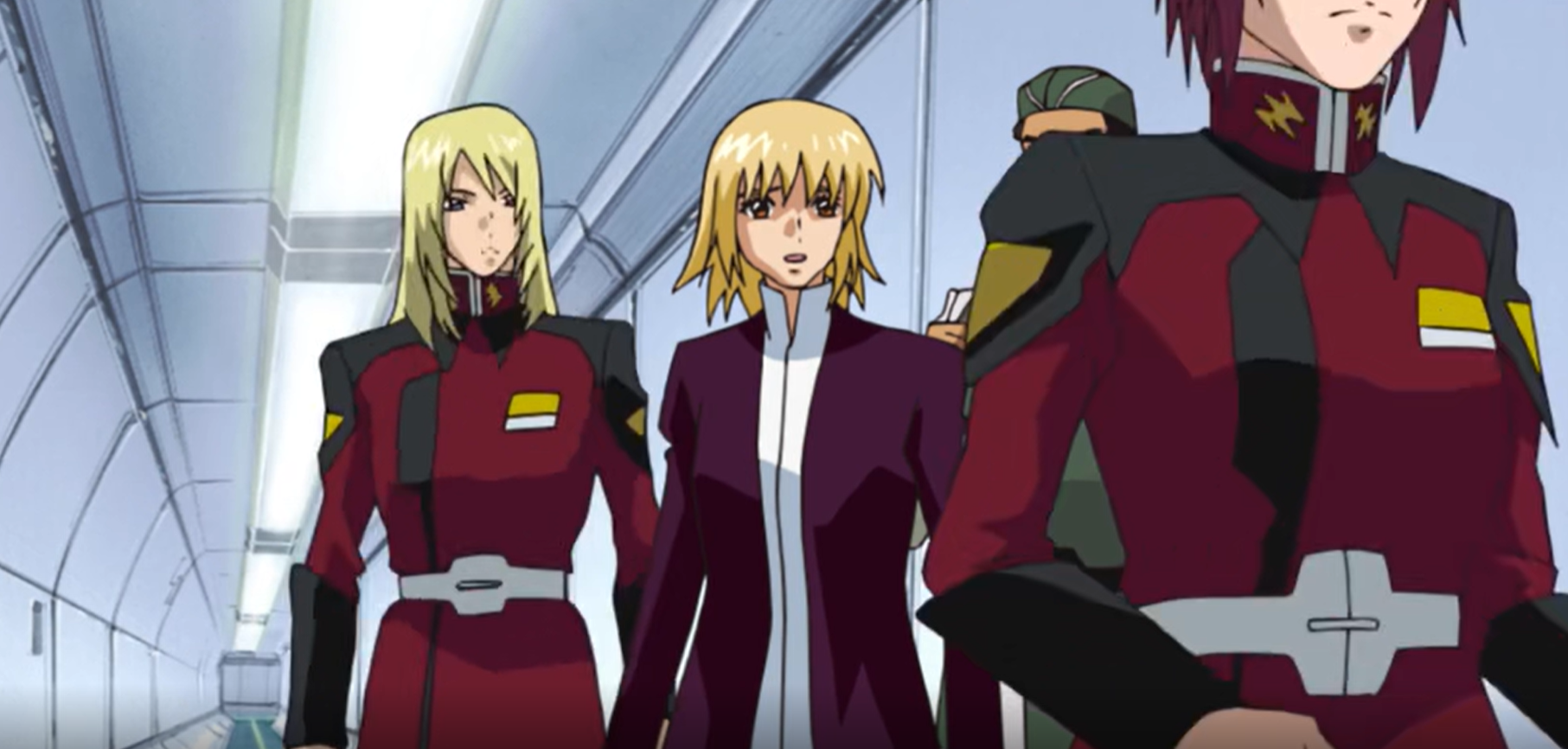The small but powerful island nation of Orb made a decision that shook the foundations of the international conflict. After generations of maintaining a firm stance of neutrality—defended as a symbol of autonomy and honor—the nation chose to sign a formal alliance with the Atlantic Federation, one of the most powerful military blocs on the planet.

The signing of the agreement was met with a mix of celebration, indignation, and resignation, both within the country and abroad. For some, it was a pragmatic move: a way to ensure national survival in an increasingly polarized world. For others, it was a direct betrayal of the ideals that had once defined Orb as a beacon of independence amid the chaos of war.
International pressure, especially from the Atlantic Federation, had been relentless. Under the pretext of the growing threat posed by ZAFT and its allies, the Federation framed the alliance as a defensive necessity. However, many suspected deeper motives: access to Orb’s military technology, its strategic geographic location, and the symbolic value of breaking its neutrality may have been the true drivers behind the agreement.
Echoes of a past that would not fade
While political leaders charted new paths for their nations, there were individual figures whose personal decisions carried just as much weight as formal treaties. One of them was Athrun Zala—a name well known on both the battlefield and in diplomatic circles.
The son of the late Patrick Zala, one of ZAFT’s ideological architects, Athrun found himself at a crossroads. In recent months, he had hovered between exile and introspection, burdened by the weight of past decisions that still reverberated. His participation in key battles, his proximity to influential figures on both sides, and his well-known moral ambivalence had turned him into a complex, almost tragic figure.
In the midst of this tension, Athrun was visited by former comrades: Yzak Joule, Dearka Elsman, and Nicol Amalfi. Far from a nostalgic reunion, the meeting carried deep political and emotional significance. What was once a combat squad now gathered as a council of war-scarred veterans. According to insiders, their conversation was steeped in reproach, memory, and a shared question: what now?
The fragility of the present
The circumstances under which Athrun had to make his decisions were uncertain, to say the least. The alliance between Orb and the Atlantic Federation exposed a series of internal contradictions: military factions still loyal to the nation’s old principles, citizens organizing silent protests, and public officials resigning in defiance.
At the same time, the Atlantic Federation’s military presence became increasingly visible in Orb’s ports and strategic bases. Warships bearing foreign insignias patrolled the coasts, while ground troops established positions on the nation’s outskirts. The population watched this transformation with a mix of fear and hope: fear of losing sovereignty, and hope that this alliance might finally bring a long-awaited peace.
Amid this climate of tension and surveillance, Athrun’s every move was closely monitored by multiple factions. Would he take up arms again? If so, for ZAFT? For Orb? Or for a cause of his own?
Athrun’s crossroads
The reunion with his former squadmates marked, according to many observers, an emotional turning point for Athrun. Yzak, ever blunt, confronted him over his shifting allegiances and apparent inaction. Dearka, more conciliatory, reminded him of the bonds they still shared. Nicol, introspective, appealed to the values they once fought for together.
What became clear was that Athrun could no longer delay his decision. The conflict was escalating, and his skill as a pilot, strategist, and public figure remained highly sought after. But this time, he seemed determined not to be swept along by the current without first defining his own principles.
His dilemma went beyond military strategy; it was deeply ethical. Could someone with his history speak of justice? Was it possible to fight for peace from within a military machine? What of his personal ties—to Kira, to Cagalli, to Lacus—if his decision placed him on the opposite side of those he cared about?
The weight of ideals
Unlike many of the conflict’s key players, Athrun had never been fully driven by ideology. Throughout his journey, his loyalty had always been guided by conscience. He allowed himself to question orders, to desert, to reflect. That capacity for critical thinking—his rejection of blind obedience—made him a dangerous anomaly to some and a valuable asset to others.
In a world where political decisions were often dictated by fear or convenience, Athrun represented something rare: someone still striving to act with integrity, even if that meant walking alone. But that pursuit also left him exposed. Refusing to choose sides could be seen as weakness. Choosing one side would mean betraying others. His decision would not affect him alone; it would carry weight for many.
An uncertain future
There were no immediate signs indicating which path Athrun would take. Some rumors suggested a potential alliance with Lacus Clyne and her underground movement—activists promoting a third path outside of both ZAFT and the Atlantic Federation. Others believed he might return to the battlefield, this time as an independent agent.
What was certain was that his decision would be watched closely by all involved in the conflict. In a time when wars were waged faster than words could keep up, the emergence of someone who still dared to think before acting had unique value.
And so, as Orb cast aside its neutrality and the world edged toward a new phase of confrontation, Athrun Zala gazed toward his future like one studying a minefield: knowing that each step could mark the end—or the beginning of something entirely different.


